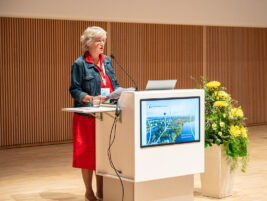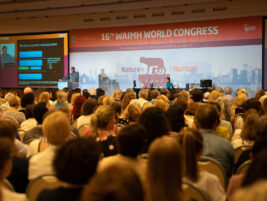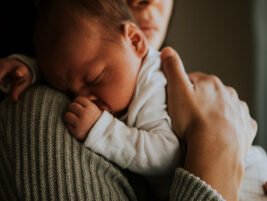While reading Antoine Guedeney’s description of the changes that he and Nicole witnessed since their last trip to Uruguay in professionals’ stance regarding babies’ competencies and vulnerabilities, I find that the theme of our coming conference in Edinburgh – «Our responsibilities, Babies’ Contributions» – comes «just in time». Indeed, the more we know about an infant’s abilities to perceive interpersonal affects and events and, consequently, to develop symptoms while facing adverse environments, the more we are called to act and protect his or her development.
As I travel around the world and meet infant mental health professionals from different countries, I realize how complex the meaning is of the phrase, «our responsibilities.” Indeed, we must take into consideration the huge variation in our cultural, geo-physical and economical contexts and health policies. For example, while Palvi Kaukonen, Kaija Puura, Campbell Paul and myself, gave a pre-European Society for Child and Adolescent Psychiatry (ESCAP) Conference WAIMH Training day in Dublin, I had a talk with the chairman of the Irish Psychiatry Association. As the only adult psychiatrist at the Dublin Women and Infants Hospital, he was wondering about the relevancy of what we like to call «emotional prenatal care» to the Irish Catholic society where abortion is totally forbidden, even in medical cases, and Irish women who do not have financial resources to get an abortion in England, are simply left alone to go on carrying their unwanted and/ or malformed fetus. …Obviously, many of those women and their infants are then referred to him with postpartum depression, attachment and/or relational problems. We wondered together about his responsibility as a psychiatrist and a member of the Irish community while I wondered about WAIMH’s responsibility As I travel around the world and meet infant mental health professionals from different countries, I realize how complex the meaning is of the phrase, «our responsibilities.” Indeed, we must take into consideration the huge variation in our cultural, geo-physical and economical contexts and health policies. For example, while Palvi Kaukonen, Kaija Puura, Campbell Paul and myself, gave a pre-European Society for Child and Adolescent Psychiatry (ESCAP) Conference WAIMH Training day in Dublin, I had a talk with the chairman of the Irish Psychiatry Association. As the only adult psychiatrist at the Dublin Women and Infants Hospital, he was wondering about the relevancy of what we like to call «emotional prenatal care» to the Irish Catholic society where abortion is totally forbidden, even in medical cases, and Irish women who do not have financial resources to get an abortion in England, are simply left alone to go on carrying their unwanted and/ or malformed fetus. …Obviously, many of those women and their infants are then referred to him with postpartum depression, attachment and/or relational problems. We wondered together about his responsibility as a psychiatrist and a member of the Irish community while I wondered about WAIMH’s responsibility
WAIMH’s mission is to promote education, research, and study of the effects of mental, emotional and social development during infancy on later normal and psychopathological development through international and interdisciplinary cooperation, publications, affiliate associations, and through regional and biennial congresses devoted to scientific, educational, and clinical work with infants and their caregivers.
One clear responsibility is to disseminate the knowledge we have about infants’ competencies, in countries where infant mental health does not exist as a field/ profession. For instance, at the end of this month, Palvi, Kai von Klitzing, Astrid Berg and I, will present a symposium at the Asian Association of Child and Adolescent Psychiatry Conference in New Delhi under the title, «Early Identification of Psychopathology». We know that in India there are very few child psychiatrists and mental health professionals and that children’s needs are great. We also know that infant mental health is not yet a priority in India’s health system policies. In our last Executive Committee skype meeting, we decided to consider this our responsibility, to go there in person, (partly at our own expenses, partly with WAIMH financial support), to meet and talk with local professionals about what could be done to support the awareness and integration of infant mental health into local and national health policies.
The Edinburgh conference title – Our Responsibilities and Babies’ Contributions – is also in line with a major issue we have been busy with, the writing of a WAIMH Declaration for Infant’s Rights. As I announced in my previous Presidential address, we are about to send you a survey about the draft we have finalized over the last months.
A few lines of introduction to this draft:
The creation of WAIMH was, in itself, a declaration of the infant’s rights for mental health, as reflected in its 5 purposes described in the bylaws:
«The ASSOCIATION has been organized to operate exclusively for scientific, charitable and educational purposes as follows:
- To operate exclusively for charitable, scientific and educational purposes, and more specifically to research and study throughout the world, the mental development and mental disorder in children from conception through three years of age;
- To facilitate international cooperation among individuals concerned with promoting conditions that will bring about the optimal development of infants and infant-caregiver relationships;
- To encourage the realization that infancy is a sensitive period in the psychosocial development of individuals;
- To promote education, research, and study of the effects of mental development during infancy on later normal and psychopathological development; and to promote research and study of the mental health of the parents, families and other caregivers of infants;
- To promote the development of scientifically based programs of care, intervention, and prevention of mental impairment in infancy.”
The infant (from birth to age of 3 years) by reason of his physical and mental immaturity and absolute dependence needs special safeguards and care, including appropriate legal protection, before as well as after birth.
As professionals who work with infants and parents within different cultures and societies, we feel there is a need for specifying the infant’s rights, beyond what has been already included in the Declaration of Children’s Rights». As detailed in the Declaration of Children’s Rights, the first three principles deal with non-discrimination, protection by law and the right to an identity. Principle 4 states an entitlement to growth and development in health, with adequate prenatal care, nutrition and medical services. Principle 5 states provisions for children with special needs. Principal 6 asserts the child’s needs for love and understanding from parents and caregivers as well as the obligations of society to provide support «in an atmosphere of affection and moral and material security». Principle 7 asserts the right to education, play and recreation. Principles 8 and 9 deal with priorities for the child for obtaining protection in the midst of adversity, neglect, cruelty and exploitation. Principle 10 asserts the right of the child to be brought in an atmosphere of tolerance as opposed to exposure to racial or religious discrimination.
This Declaration of the Rights of the Infant is drafted in order to bring to public awareness world-wide the foundational importance of the first three years of life as a period of unique sensitivity to environmental influences that may have enduring effects on later development. The young child’s capacity to experience, regulate, and express emotions, form close and secure relationships, and explore the environment and learn are fundamental to mental as well as physical and developmental health throughout the life span.
You will soon receive this draft to reflect on and send any comment/suggestion you may have to the WAIMH Central Office. We invite your feedback before we finalize the proposal and present it at our next conference in Edinburgh (15-18 June, 2014).
A second task in which we are very much involved is the revision of the DC 0-3R, as a joint effort of the WAIMH and ZERO TO THREE organizations. Again, you will receive in the near future a survey about how much you use the DC 0-3R in your current practice, clinical as well as research. The revision will use the results of the survey, as well as updated literature reviews about each diagnosis. The whole process is supposed to take three years, starting from May 2013, and is sponsored by the ZERO TO THREE organization. A special slot time in the Edinburgh conference program will be dedicated to this topic, so we’ll have a chance to give your feedback also in live!
Last but not least, another responsibility of ours is to make our organization fit into our globalized world. Our coming Board and Honorary Presidents electronic meeting is dedicated to the development of WAIMH Social Media, with the help of a Finnish company, named Dicole.
For those who do not know yet, our two well-known WAIMH members, Astrid Berg from South Africa and Campbell Paul from Australia, have been elected as Board members. Campbell will therefore continue to fill the treasurer position. By the way, the voting rate was high, and the five candidates were quite close in their odds!
See you «soon» in Edinburgh, 15-18 June 2014….!
Very warmly to all of you,
Miri Keren
Vol. 21 No.3 Fall 2013 – Presidential Address: Reflections on WAIMH’s Responsibilities
Authors
Keren, Miri,
WAIMH President,
Israel








